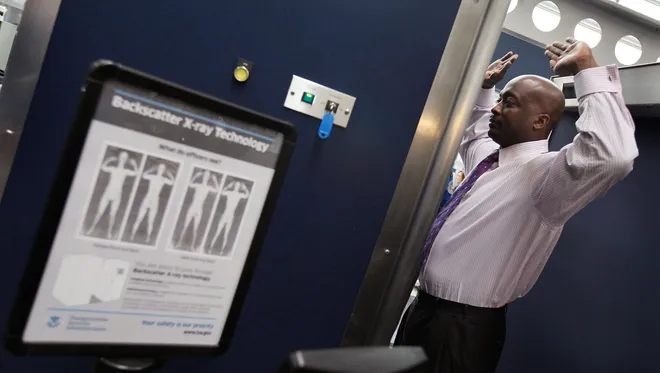A federal watchdog criticized the Transportation Security Administration for mistakes in evaluating applications for private screeners at airports, but the agency contends the flaws have been remedied.
The inspector general for the Department of Homeland Security found that TSA files for five airports that applied for permission to hire private screeners under the Screening Partnership Program (SPP) had documents that weren’t finalized and contained inaccurate information.
“Without improving aspects of its administration of SPP, TSA increases the risk of not selecting the best contractor for the screening process,” Anne Richards, assistant inspector general for audits, wrote in the report dated June 20.
John Halinski, TSA deputy administrator, replied that some documents were mislabeled, but that didn’t hurt the agency’s review of the applications.
“TSA believes the SPP is a robust, effective and well-run program, and the (inspector general’s) recommendations will help improve it,” Halinski wrote.
TSA issued a statement Monday agreeing with the inspector general’s recommendations and saying the effort provides the most effective security in the most efficient manner.
“In fact, TSA has already revised its SPP application process to ensure application decisions are fully documented and updated the formula for analyzing cost efficiency in the procurement process,” the agency said.
The inspector general’s report rekindled a dispute about whether private security screeners can be as efficient as the TSA. Congress created the agency in the aftermath of the hijackings Sept. 11, 2001, to federalize passenger and baggage screening to prevent another attack.
The TSA has approved 16 airports, the largest in San Francisco, to contract for private screening. Participating airports say they are better able to move around screeners where needed, and it’s easier to fire private workers if necessary than federal workers.
TSA Administrator John Pistole has questioned expanding the Screening Partnership Program because he contends private screeners cost more and federal officials must still monitor them.
The costs are hotly contested in Congress, where lawmakers changed the law in 2012 to call for approval of applications so long as they wouldn’t sacrifice security or cost-efficiency.
Five airports applied since the law changed: Orlando Sanford, Sacramento and three in Montana, Glacier Park, Bert Mooney and Bozeman Yellowstone.
Sacramento has withdrawn its application and the other four have been accepted into the program, but the TSA has not awarded contracts for those airports, according to the audit.
The inspector general found more than half the documents the TSA used to evaluate the applications weren’t finalized.
Investigators also found errors. One document overstated the cost of using private screeners by $162,057. Another document understated the savings of private screeners by $423,572.
“Although in these two cases, TSA correctly approved the applications, there is still a risk that inaccurate estimates could lead to incorrect decisions,” the report said.
In his written reply to the report, Halinski said some documents were mislabeled, but the application form was finalized in March 2013. The TSA expected to complete its cost-estimating process by Sunday.
Halinski said the allegedly inaccurate figures were both on the same application and were actually correct but mislabeled.
“Although the mislabeling is regrettable, these errors did not lead TSA to miss ‘opportunities to save funds,'” Halinski wrote.
Sen. Roy Blunt, R-Mo., who requested the inspector general’s report, “still has great concerns” about the accuracy of TSA cost estimates, spokeswoman Amber Marchand said.
“He also has concerns that TSA still needs to address in order to effectively manage and expand the SPP program, as Congress intended,” Marchand said.
Rep. John Mica, R-Fla., who has long argued against federal screeners, called the mistakes “outrageous.”
“This report proves that TSA still uses its faulty cost methodology to justify its political agenda at the expense of airports, travelers and taxpayers,” Mica said.
Rep. Bennie Thompson of Mississippi, the top Democrat on the Homeland Security Committee, who has proposed legislation to overhaul the private-screening program, said the report shows the TSA “continues to struggle with developing a consistent and reliable model for conducting cost assessments.”
Source: https://www.usatoday.com/story/travel/flights/2013/07/01/tsa-airport-screening-private/2480433/

